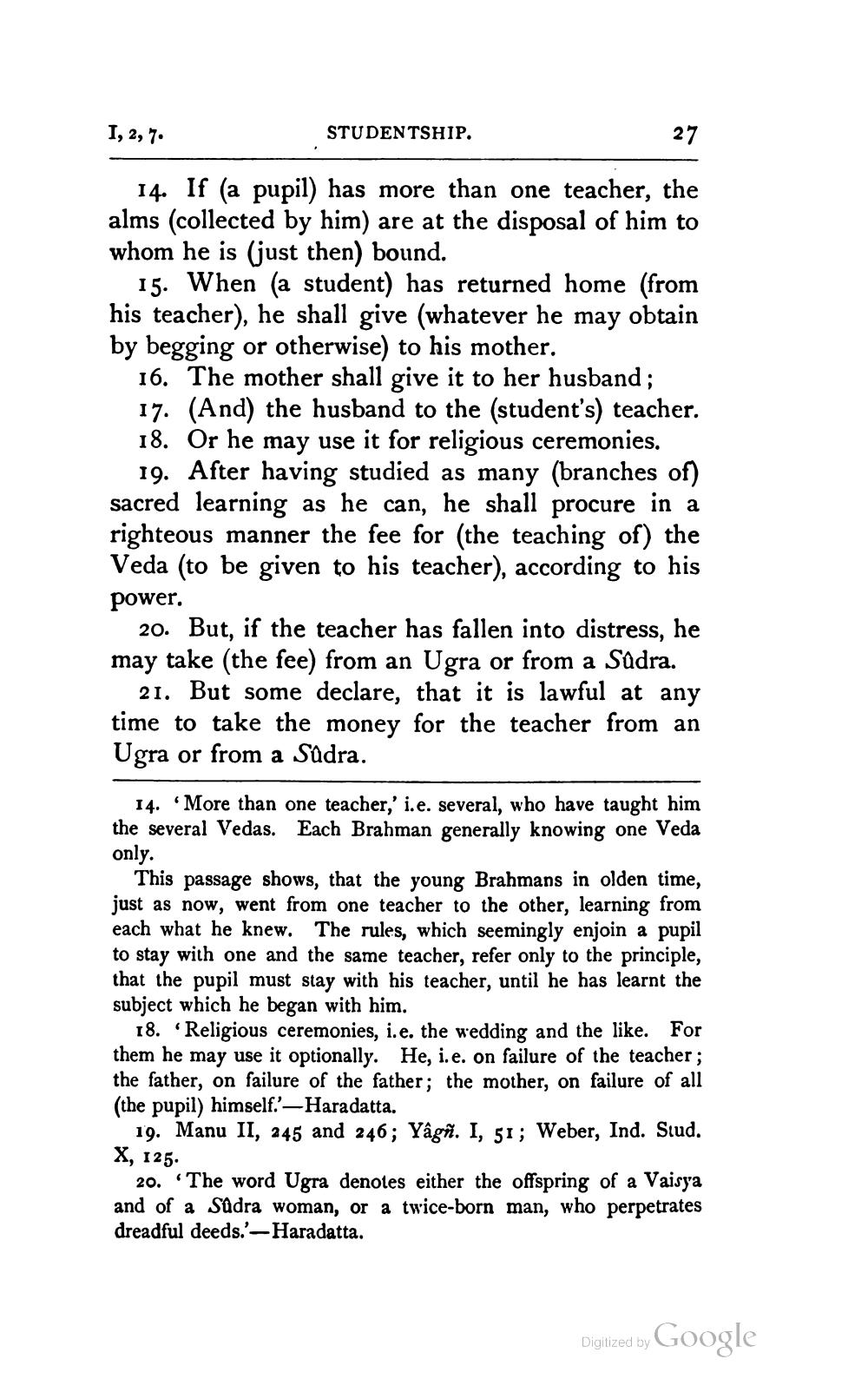________________
I, 2, 7.
27
14. If (a pupil) has more than one teacher, the alms (collected by him) are at the disposal of him to whom he is (just then) bound.
15. When (a student) has returned home (from his teacher), he shall give (whatever he may obtain by begging or otherwise) to his mother.
16. The mother shall give it to her husband; 17. (And) the husband to the (student's) teacher. 18. Or he may use it for religious ceremonies. 19. After having studied as many (branches of) sacred learning as he can, he shall procure in a righteous manner the fee for (the teaching of) the Veda (to be given to his teacher), according to his power.
20. But, if the teacher has fallen into distress, he may take (the fee) from an Ugra or from a Sûdra.
21. But some declare, that it is lawful at any time to take the money for the teacher from an Ugra or from a Sûdra.
STUDENTSHIP.
14. More than one teacher,' i.e. several, who have taught him the several Vedas. Each Brahman generally knowing one Veda only.
This passage shows, that the young Brahmans in olden time, just as now, went from one teacher to the other, learning from each what he knew. The rules, which seemingly enjoin a pupil to stay with one and the same teacher, refer only to the principle, that the pupil must stay with his teacher, until he has learnt the subject which he began with him.
18. Religious ceremonies, i.e. the wedding and the like. For them he may use it optionally. He, i.e. on failure of the teacher; the father, on failure of the father; the mother, on failure of all (the pupil) himself.'-Haradatta.
19. Manu II, 245 and 246; Yâgn. I, 51; Weber, Ind. Stud. X, 125.
20. The word Ugra denotes either the offspring of a Vaisya and of a Sûdra woman, or a twice-born man, who perpetrates dreadful deeds.'-Haradatta.
Digitized by Google




